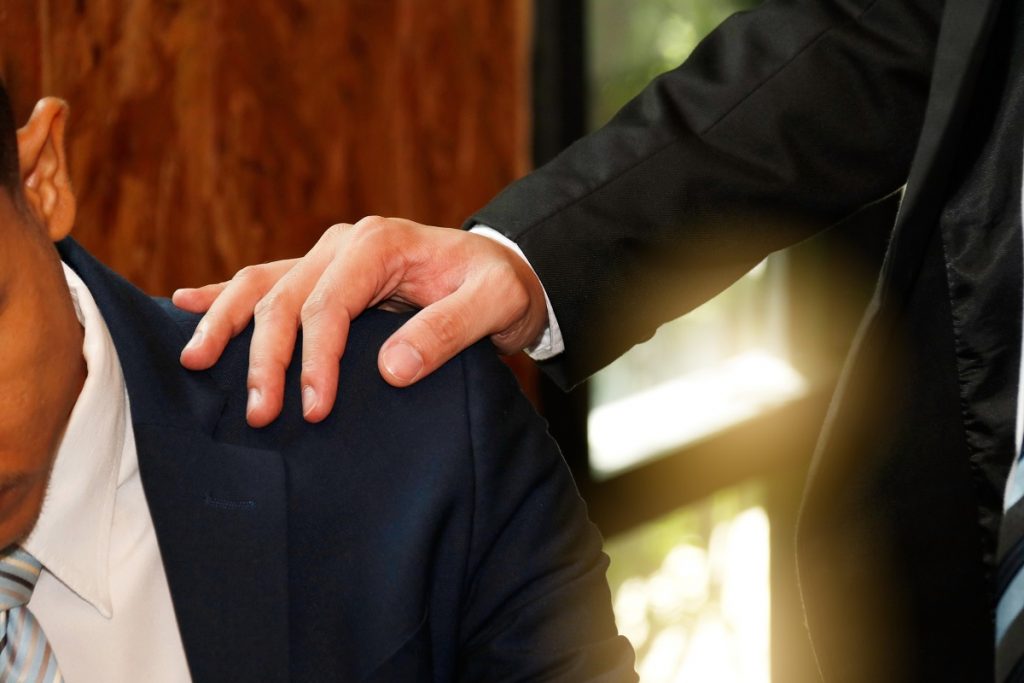Handling grief and the death of a loved one is one of the hardest things to deal with. It is a long process and frequently painful as well. Everyone needs to understand that grief is a natural reaction to loss. You may feel a range of challenging and unexpected feelings, such as astonishment or rage, as well as disbelief, remorse, and great regret. You will need to accept that the person is gone and that they will never come back.
Often, it can be overwhelming for the family or immediate survivor to handle the funeral arrangements. You can find professionals extending this kind of service to help bereaved families.
Dealing with grief and loss is never easy, but here are small steps you can take to ease the pain.
1. Know that what you feel is normal
Sadness is a normal feeling that you will experience when you lose someone you love. You may also feel anger, and sometimes you may feel nothing. Feeling nothing does not mean that you don’t care. It just means you’re numb from whatever is happening.
You feel overwhelming emotions at the same time that you feel nothing. Grief opens the door to feelings that you may or may not understand. But remember, you lost someone you genuinely love and feeling emotions is normal.
2. Experience the loss
No matter how long it takes, you should experience the loss. You can’t just skip the experience and go back to your everyday life. Missing the experience can break you. Feel the pain and cry your heart out. Denying your feelings may appear to be a faster way to heal.
You might also get the impression that people want you to bury your sadness and move on before you’ve entirely accepted your loss. Always keep in mind that grieving is a painful and challenging process. Try not to be swayed by the views of others and instead feel and cope with your sorrow.
3. Take care of yourself
Some people seek comfort in the distraction of work. But if possible, avoid forcing yourself to recover before you are ready. People frequently overwhelm themselves with tasks. Taking on more than they can safely do to avoid climbing the wall of painful feelings.
Finding a middle ground is essential. Some diversion can be beneficial, as long as you also find time to confront your feelings. Do not just blindly overwhelm yourself with work and rest if you’re tired. Caring for your well-being might appear difficult or selfish, but always remember you are alive, and you need to live.

4. Remember them in your heart
They might be gone physically, but they will always live in your heart. Remember them and share their memories with others. It might be painful to talk about them at first, but as the words flow out, you will remember them, and it will ease your pain. You can also do something in their memory. You might create an album of their life and your memories together. You can also plant a tree, adopt pets, or continue the work they left, like donating to charity and other meaningful things.
5. Let others comfort you
You might want to bottle up your feelings, but you should let others comfort you. Your friends or family may not know what to say if they did not experience the same thing, but being with them will help you feel less alone. It’s natural to need time to mourn alone, but fully isolating oneself usually doesn’t help. The connection and support of people closest to you might help keep your grief from overwhelming you. Just make sure to let others know what you need, and they will surely help you overcome the grief you’re feeling.
6. Talk to a therapist
Your friends and family may offer comfort, but there is no shame in asking for professional help. A therapist can provide comfort and assistance as you begin to move through the complicated emotions that often accompany loss.
Grief counselors can also offer you coping methods to help you adjust to life without your loved one. Therapy also provides a safe environment to process any guilt, anger, resentment, or other residual feelings associated with the deceased and reach closure. So if needed, seek professional help to overcome your loss.
Grief following the death of a loved one may deplete you and leave you tumbling, regardless of the type of connection you had with the person. Remember that mourning is a natural and healthy process that is unique to each individual. You should treat yourself with compassion and kindness. Have patience as you take the moment you need to process your loss. And someday you might accept everything and go on with your life like you usually do.
